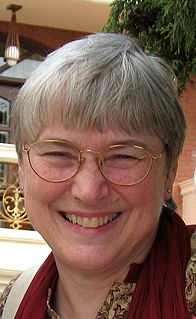
The economy of Pakistan is the 23rd largest in the world in terms of purchasing power parity (PPP), and 38th largest in terms of nominal gross domestic product. Pakistan has a population of over 207 million, giving it a nominal GDP per capita of $1,641 in 2018, which ranks 147th in the world and giving it s PPP GDP per capita of 5,709 in 2018, which ranks 130th in the world for 2018. However, Pakistan's undocumented economy is estimated to be 36% of its overall economy, which is not taken into consideration when calculating per capita income. Pakistan is a developing country and is one of the Next Eleven countries identified by Jim O'Neill in a research paper as having a high potential of becoming, along with the BRICS countries, among the world's largest economies in the 21st century. The economy is semi-industrialized, with centres of growth along the Indus River. Primary export commodities include textiles, leather goods, sports goods, chemicals, carpets/rugs and medical instruments.
Economic history is the study of economies or economic phenomena of the past. Analysis in economic history is undertaken using a combination of historical methods, statistical methods and the application of economic theory to historical situations and institutions. The topic includes financial and business history and overlaps with areas of social history such as demographic and labor history. The quantitative—in this case, econometric—study of economic history is also known as cliometrics.

Douglass Cecil North was an American economist known for his work in economic history. He was the co-recipient of the 1993 Nobel Memorial Prize in Economic Sciences. In the words of the Nobel Committee, North and Fogel "renewed research in economic history by applying economic theory and quantitative methods in order to explain economic and institutional change."

Cliometrics (klīəˈmetriks), sometimes called new socialhistory, or econometric history, is the systematic application of economic theory, econometric techniques, and other formal or mathematical methods to the study of history. It is a quantitative approach to economic history. The term cliometrics comes from Clio, who was the muse of history, and was originally coined by the mathematical economist Stanley Reiter in 1960. There has been a revival in 'new economic history' since the late 1990s.

Robert William Fogel was an American economic historian and scientist, and winner of the 1993 Nobel Memorial Prize in Economic Sciences. As of his death, he was the Charles R. Walgreen Distinguished Service Professor of American Institutions and director of the Center for Population Economics (CPE) at the University of Chicago Booth School of Business. He is best known as an advocate of new economic history (cliometrics) – the use of quantitative methods in history.
There are several approaches to defining the substance and scope of technology policy.
The Journal of Political Economy is a bimonthly peer-reviewed academic journal published by the University of Chicago Press. It covers both theoretical and empirical economics. It was established in 1892 by James Laurence Laughlin.

Dorothy Riddle is an American-Canadian psychologist, feminist and economic development specialist. She is known as the author of the Riddle homophobia scale and published work on women's studies, homophobia, services and metaphysics.
Jeffrey Gale Williamson is the Laird Bell Professor of Economics (Emeritus), Harvard University; an Honorary Fellow in the Department of Economics at the University of Wisconsin (Madison); Research Associate at the National Bureau of Economic Research; and Research Fellow for the Center for Economic and Policy Research. He also served (1994–1995) as the president of the Economic History Association. His research focus is and has been on comparative economic history and the history of the international economy and development. Economist Hilary Williamson Hoynes is his daughter.
Naomi Raboy Lamoreaux is an American economic historian, specializing in US business and technological history. She is the Stanley B. Resor Professor of Economics and History of Economics and History at Yale University and an emeritus professor at UCLA and Research Associate at the National Bureau of Economic Research. She has worked widely on business, economic, and financial history with perhaps her most noted works being her 1988 book The Great Merger Movement in American Business, 1895-1904 and her 1996 book Insider Lending: Banks, Personal Connections and her Economic Development in Industrial New England. Professor Lamoreaux was elected to the presidencies of both the Business History Conference and the Economic History Association. She has been awarded several prizes for her academic work including the Arthur Cole article prize and the Cliometric Society's Clio Can. She has served on the editorial boards for numerous journals in the field of economic history, including the Journal of Economic History, Journal of Economic Perspectives, Essays in Economic and Business History, and Capitalism and History.

Burton A. Weisbrod is an American economist who pioneered the theory of option value and also advanced methods for benefit-cost analysis of public policy by recognizing the roles of externality effects in program evaluation. He applied those methods to the fields of education, health care, poverty and nonprofit organization. Over a career of fifty years, he published 16 books and over 200 scholarly articles. He is currently the John Evans Professor of Economics and a Faculty Fellow of the Institute for Policy Research at Northwestern University.
Jeremy Atack received his B.A. from Jesus College of the University of Cambridge and his Ph.D. from Indiana University. He is Research Professor Emeritus of Economics at Vanderbilt University, a Research Associate at the National Bureau of Economic Research, a Fellow of the Cliometric Society, and was the Kinkhead Research Scholar at the University of Illinois (1992-1993). He is a noted academic economic historian whose primary research focus is on 19th century US industrialization. He has been president of the Economic History Association (2011–12), the Agricultural History Society (2002-3) and the Business History Conference (1999).
Richard Hall Steckel is an American heterodox economist with a focus on economic history. Steckel is the SBS Distinguished Professor of Economics, Anthropology and History at Ohio State University (OSU) and a research associate at the National Bureau of Economic Research (NBER). He is well known for his work on health and well-being, in which he is a major contributor to anthropometric history along with John Komlos. Their work was highlighted in a 1996 Time magazine front page article. Between 2004 and 2005 he served as president of the Social Science History Association.
Price V. Fishback is an economic historian. He is a professor of Economics at the University of Arizona and a research associate at the National Bureau of Economic Research. His research on American economic history has included employment and labor in the nineteenth and early twentieth centuries especially in the coal industry, and government programs of the New Deal. His work has been recognised by the Cliometric Society via their awarding him a Clio Can in recognition of his "exceptional support of cliometrics". Prior to arriving to the University of Arizona, Fishback was an Assistant and later Associate Professor at the University of Georgia.
Lance Edwin Davis was the Mary Stillman Harkness Professor of Social Science at the California Institute of Technology. He researched the economic history of financial markets and institutional and technological change. His work has been recognised by The Cliometric Society via their awarding him a Clio Can in recognition his of exceptional support of cliometrics.
Julian Wolpert is Bryant Professor Emeritus of Geography, Public Affairs, and Urban Planning at Princeton University's Woodrow Wilson School, where he taught from 1973-2005 and chaired the Program in Urban and Regional Planning. He was previously a member of the Regional Science Department at the University of Pennsylvania (1963–73). He is a graduate of Columbia University (BA) and the University of Wisconsin-Madison, MS & PhD (Geography). He served as a U.S .Navy officer from 1956 to 1959. He was elected to the National Academy of Sciences and AAAS. He has been a fellow at the Russell Sage Foundation, the Center for Advanced Study in the Behavioral and Social Sciences, and the Woodrow Wilson Center and has been a Guggenheim fellow. Wolpert is a nationally cited scholar in the fields of location theory, urban development, migration, public and social services, and the analysis of charity, philanthropy, and the nonprofit sector, and has testified before Congress about the regulation of philanthropy. He has challenged conservatives who advocate for charitable rather than public service approaches to social policy. Wolpert served as Vice President, then President of the Association of American Geographers and Vice President of the Regional Science Association and the American Geographical Society and was elected to the American Institute of Certified Planners.
James Fred Bateman, Jr. was a noted economic historian. He served as the Nicholas A. Beadles Professor in the Terry College of Business at the University of Georgia. Bateman's main areas of research were US 19th century agricultural and industrial economic history. He served from 1982–83 as president of the Business History Conference and in 2010 he was elected as a Fellow of the Cliometric Society.
Lee J. Alston is the Ostrom Chair, Professor of Economics and Law, and Director of the Ostrom Workshop at Indiana University. He is also a Research Associate at the National Bureau of Economic Research. On August 6, 2014, Alston was appointed director of the Vincent and Elinor Ostrom Workshop in Political Theory and Policy Analysis at Indiana University, Bloomington, from which he received his B.A. in 1973. His research has focused on institutions and contracts and their role in influencing rural land use in the US and Brazil. In 2012 Alston was awarded a ClioCan award by the Cliometric Society for Exceptional Support to the Field of Cliometrics.
George Grantham is an American economic historian and Emeritus Professor at McGill University. His contribution to economics has focused mainly on the agricultural development, particularly of the French rural economy in the 18th and 19th centuries. For many years before his retirement in 2009, he was a prominent teacher of economics at McGill University and in 2000 he was awarded the Cliometric Society's annual prize – the Clio Can for exceptional support to the field of cliometrics.
Richard Hugh Tilly is an American economic historian.







